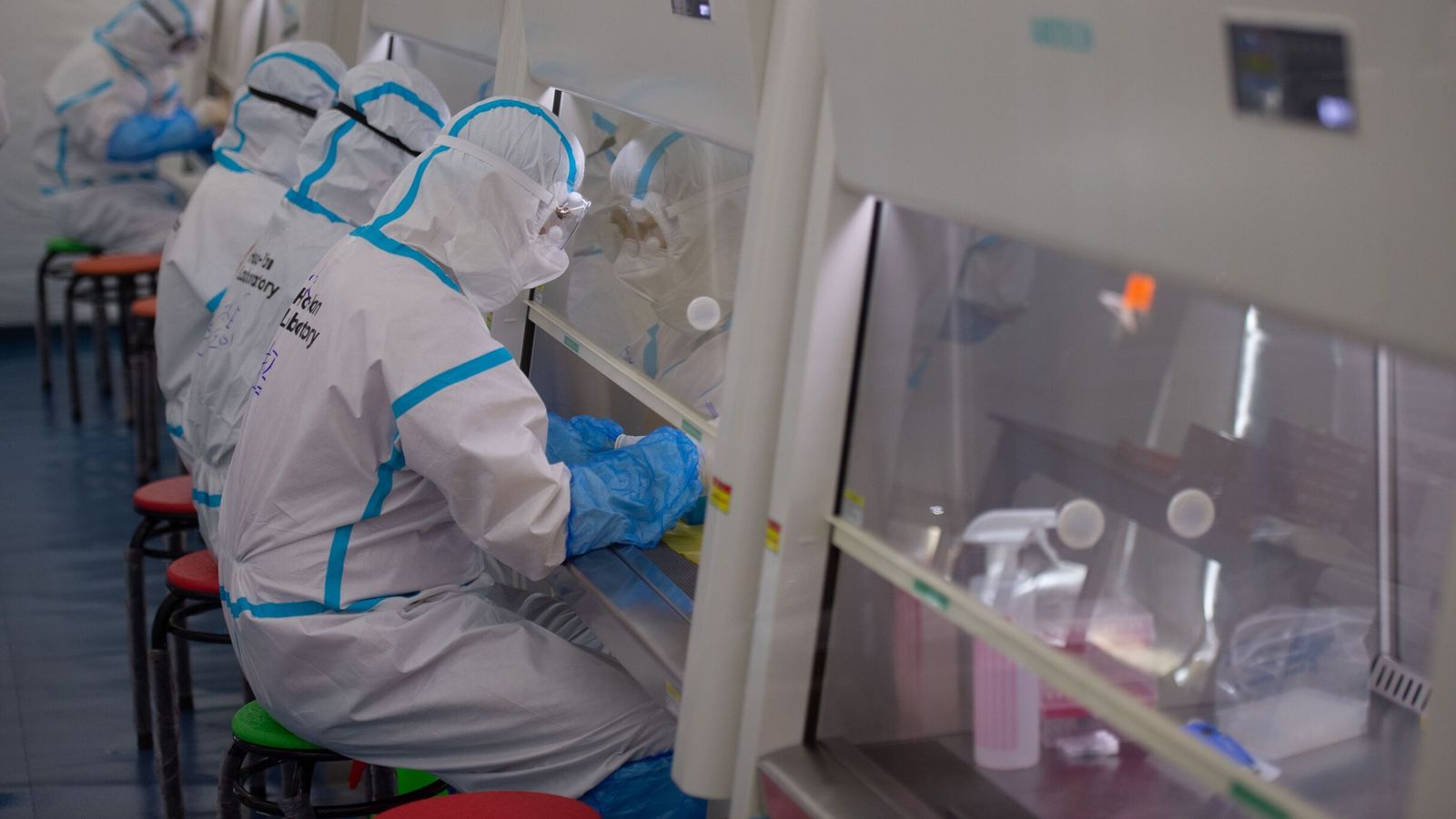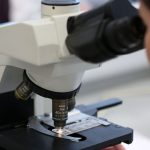A leading Chinese genetics firm has been accused by a government minister of trying to hack the NHS genome database.
China‘s BGI Group, made repeated attempts to hack the servers of Genomics England in 2014, science minster George Freeman has claimed.
At the time, Genomics England was embarking on a project to collect the genomes of 100,000 NHS patients for use in biomedical research.
BGI, formerly the Beijing Genomics Institute, is one of the world’s largest genome sequencing and genetic technology companies. It also makes diagnostic tests.
During the pandemic, its COVID-19 test kits were used in 180 countries around the world.
But the firm is a “danger point” in the global race to develop genomic technology for use in healthcare and research, said Mr Freeman in a Westminster Hall debate.
“It’s not just a race with our benign competitors, there are also hostile actors who want to use science and technology to hold us back, or steal our science and technology for their own use,” he said.
Chinese foreign minister warns ‘reckless’ US risks ‘catastrophic’ conflict
China’s regime faces difficult questions post-COVID as Xi Jinping tightens grip with unprecedented third term
Crisis-hit city reveals how cruel China’s housing boom can be – with potential to drag down entire economy
His comments came as a group of MPs wrote to Prime Minister Rishi Sunak urging him to follow the United States in acting to prevent Chinese firms from harvesting or misusing genetic data from UK citizens.
Last week, the US added BGI Group and some of its subsidiaries to its “entity list” of blacklisted trading partners, saying: “The actions of these entities concerning the collection and analysis of genetic data present a significant risk of diversion to China’s military programs.”
BGI said the US decision had been “impacted by misinformation”.
But UK MPs say similar steps should be taken in the UK by preventing BGI from applying for government contracts under the new procurement bill, according to the letter from members of the health, defence and treasury committees.
BGI has contracts with a number of universities in the UK and supplies equipment for the National Microbiology Framework. It also sells diagnostic tests in the UK which require samples of a patient’s DNA.
Human genetic information collected in the UK is protected by strict data protection laws, but concerns have been raised because China doesn’t offer the same protections.
Read more:
Chinese foreign minister warns ‘reckless’ US risks ‘catastrophic’ conflict
China’s regime faces difficult questions post-COVID as Xi tightens grip
China accuses US of ‘abusing state power’ following TikTok bans on government devices
As the country’s leading genomic technology company, connections have been alleged between BGI and the collection and misuse of genomic data by the Chinese government in policing its own citizens including Uighur and Tibetan groups.
Under Chinese law, companies can be compelled to share data with the authorities on national security grounds.
Be the first to get Breaking News
Install the Sky News app for free
In response to the hacking allegations, BGI Group said: “We are incredulous at this statement. BGI Group has never been, and will never be, involved in ‘hack attacks’ against anyone.”
In response to the call for its activities in the UK to be restricted, the company said: “Our lab in the UK has its own local servers, and data processed in the UK remain in the UK and the EU. BGI Group’s labs meet stringent standards in information security.”
Regarding its alleged ties to the Chinese government, it said: “BGI Group is not ‘state-linked’. None of BGI Group is state-owned or state-controlled, and all of BGI Group’s services and research are provided for civilian and scientific purposes.”
It added: “BGI Group does not condone and would never be involved in any human rights abuses.”






















